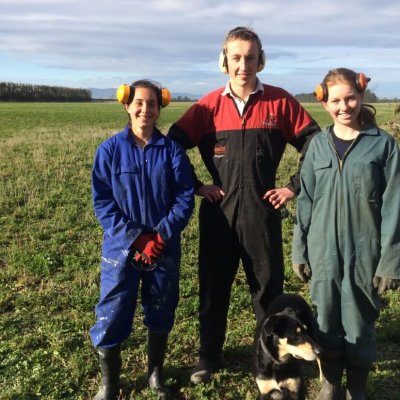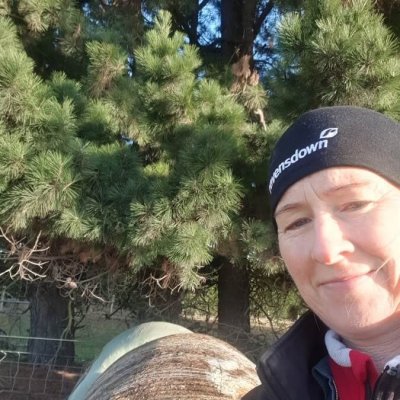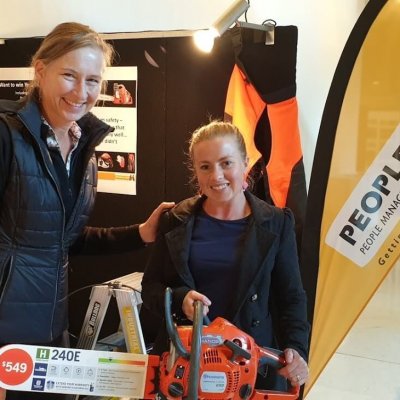Growing up on a lifestyle block near Springston, Sarah spent her childhood helping her dad with outside chores and dreaming of one day owning her own farm. Fortunately for Sarah her dreams came to fruition, as she now finds herself not only farming with her family on the Canterbury Plains, but running her own business, PeopleMAD, which focuses on providing strategic support to businesses in primary industries in order to help them get the very best out of their people. Sarah thoroughly enjoys working alongside farmers, and has a universal goal to “improve the effectiveness and efficiency of how work gets done, resulting in improved productivity, a more enjoyable workplace and better people retention.”
When asked about what concerned Sarah about the health and safety of those in rural industries and communities, Sarah recalled the industry’s former use of three-wheeled motorbikes, and how a simple lapse in concentration can be the difference between arriving home safely and otherwise dire circumstances. She highlighted the importance of great communication and leading by example, and that by giving people explicit permission to talk about health and safety in the workplace, you open up a myriad of opportunities for improvement. She wants to change the industry’s assumption that by default, people already have the skills to do a job safely, and instead give them the tools, resources and education to do it to the best of their ability and to get it right the first time. Passionate about making a difference, she aims to educate everyone that health and safety needs to be a conscious decision that’s made in each and every moment of every day.
How would you describe yourself in three words?
Encouraging, positive and focused.
Tell me something interesting about yourself...
My family moved to a lifestyle block when I was 11, I loved it. I was Dad’s number one helper making and carting hay and feeding animals. My dream has always been to work on and own a farm. These days, I am lucky enough to do both plus work with farmers every day, helping them to create better work environments for them and their people. I like that I am making a difference.
What's one achievement you are most proud of?
An achievement I’m proud of is being able to provide an opportunity for other amazing rural women, help our farming clients build and develop their own people and teams and create better work environments for them and for their people. We’re a group of motivated and genuinely caring people who love helping farmers with the people stuff.
What makes you truly happy?
Seeing my family grow up to be awesome world citizens and spending time with my husband, working together, exploring together and riding my horse!
What do you love the most about being a rural woman?
Being connected to the land, people, animals and a community of other rural women who care about family, farmers and farming.
Tell me about a time when you felt worried about your own or someone else’s health, safety or wellbeing on the farm, boat or in some other aspect of rural life.
In the ‘old’ days of three wheel motorbikes, while operating it on a hilly section of the farm – I was tired from working long hours and I misjudged the hill and the bike rolled and went over me. I was really lucky not to get hurt. It showed me how easy it was for things to go wrong and how easy it is to get complacent or not assess the situation correctly when you’re tired.
What practical things did or could you, your partner and / or others do to prevent someone from getting hurt?
The work I do with farmers includes helping them to work on making health and safety a part of their everyday activities. That includes being aware of the things that can go wrong, knowing it’s okay to say ‘No I won’t’ or ‘I can’t do that because I’m not confident that I can do it safely’.
Making sure people are trained and confident to use tools and equipment.
Understanding that the word ‘assumption’ is one of the most dangerous words in our vocabulary and that communication (real communication that results in understanding) is one of the most powerful words in our vocabulary.
Health and safety isn’t something you do once, it’s what you do always, and there are always opportunities to improve.
"Be aware of the things that can go wrong, and know that it’s okay to say 'No, I won't' or 'I can't do that because I’m not confident that I can do it safely'."
Sarah Watson, West Melton, Canterbury NZ Tweet this
Is there a time, place or scenario when your partner / workers are more willing to make changes to the way work is done?
When they’re talking about the things that frustrate them as they’re trying to do a job, usually the conversation comes around to not being able to find the tools they need, running out of things or having to take shortcuts because they are short of time. These are often frustrations that are relatively easy to resolve by doing simple things like calling them out and writing them up on the whiteboard.
If you could give any advice to another rural woman about work health and safety in rural industries, about influencing change in business - or just in general - what would it be?
Use your words and show others that it’s okay to talk about health and safety. Be good at asking questions and listening (women are usually good at that) and empower others to make safe decisions. ALWAYS say something if you think someone is doing something unsafe, is tired or not thinking straight.
Is there anything else you'd like to add?
We often don’t realise that poor process is what gives us poor results. We make assumptions that people know or will remember how to do a job, but they don’t. Try and set people up for success by helping them to do the job successfully in the first instance. That means making sure they have the knowledge, skill, right process, tools and resources to do the job safely and correctly.






